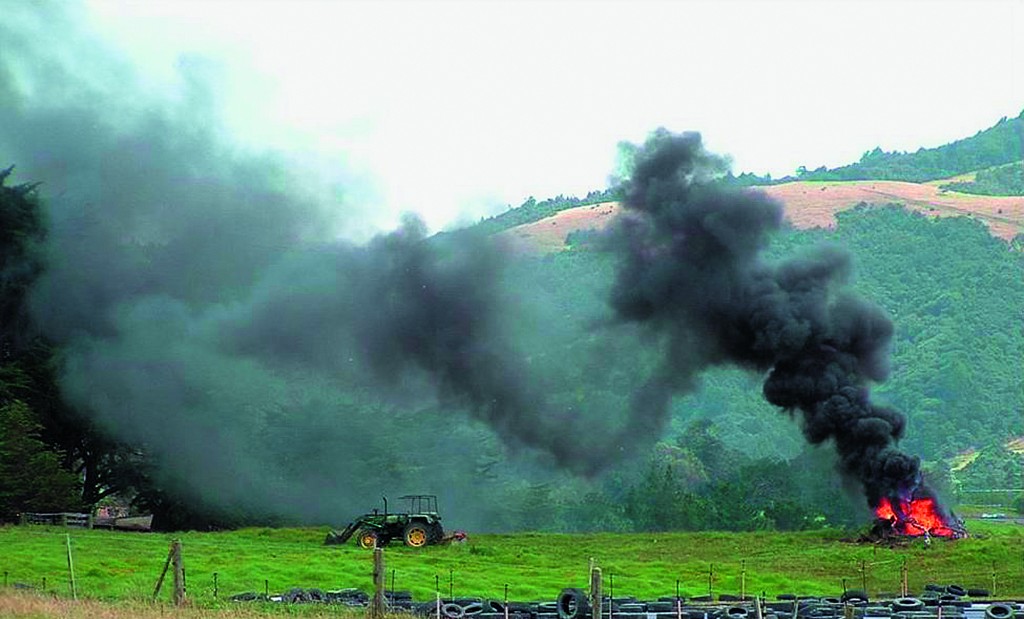Increased scrutiny from consumers and the wider community means responsible waste disposal and good farm environmental management practices are more important than ever if farmers are to maintain consumer confidence.
In June 2015, a Cowra vineyard operator was convicted and fined $15,000 in Orange Local Court and ordered to pay the prosecutor’s costs of $20,000 after pleading guilty to polluting waters on an estate near Orange.
The NSW Environment Protection Authority (EPA) prosecuted the operator after the residue from 21 drums, containing the pesticide chlorpyrifos, was emptied into a constructed stormwater drain on the estate in January 2014. The drain flows downwards to Summer Hill Creek.
The operator pleaded guilty to one charge of polluting waters contrary to section 120(1) of the Protection of the Environment Operations Act 1997.
EPA Director Gary Whytcross said, “Chlorpyrifos, an organophosphorus pesticide used to protect crops such as cotton, is highly toxic and poses a significant risk to aquatic life, animals and humans when released into the environment in high concentrations. The EPA prosecuted the operator because his actions posed a real risk of harm to the environment, within a drinking water catchment.”
In another example of irresponsible disposal, the Victorian EPA fined an Echuca man for setting industrial waste on fire on a site not permitted to receive it in June 2015.
EPA officers visited the farm in April after observing thick, black smoke coming from the premises. Upon inspection, the officers found a dam half filled with burning industrial waste, including fencing materials, timber pallets, concrete pipes, irrigation piping, plastic drums and tyres.
Following the EPA investigation, the man was fined $1771 for burning the waste.
The EPA also issued the company, which operates a farming business from the site, with a clean-up notice requiring it remove all remaining industrial waste from the dam and to dispose of it at a licensed facility.
EPA Acting North West Manager Danny Childs said it was important businesses deposited or recycled industrial waste in accordance with regulations.
“EPA takes its role as the environmental regulator very seriously and has high expectations when it comes to the management of industrial waste,” he said.
“This incident should serve as notice to all operators that they need to follow appropriate procedures for disposal of waste and ensure they’re adhered to by those working on site.”
drumMUSTER and ChemClear are perfectly placed to provide Australian farmers with a simple and cost effective way to keep their farms clean and protect the environment.
In the first instance, had the operator in Orange utilised the services of ChemClear, he would have been able to dispose of his chemicals at a significantly reduced cost.
Collection of Group 1 chemicals is free to waste holders due to a levy applied at the point of sale. Alternatively, had the operator registered the chemicals as ‘unknown, unlabelled, expired or no longer registered for use’ (Group 2 eligible), it would have cost him $3500 including freight to dispose of them in a safe manner.
National ChemClear Program Manager Lisa Nixon said, “If the Cowra farmer had registered his obsolete chemicals with ChemClear, he would have had two opportunities in the last two years to have them collected in his local council area”.
In the second case, the operator could have delivered his plastic drums only kilometres away at the Echuca Environment Centre, one of 789 drumMUSTER collection sites available across Australia for the recycling of chemical drums.
drumMUSTER is free to users thanks again to a levy paid on eligible products by participating chemical companies who have signed onto the stewardship program and collect the levy at the point of sale.
National Program Manager Allan McGann said, “Burning and burying stockpiled chemical containers is an outdated practice that no longer has a place in Australian agriculture.”
The overall aim of the programs is to ensure good farm management practices so that quality assurance standards can be met.
We encourage all chemical users to accept their responsibilities to dispose of chemicals and empty containers in an environmentally sustainable manner to protect the environment and avoid legal action and costly fines.


